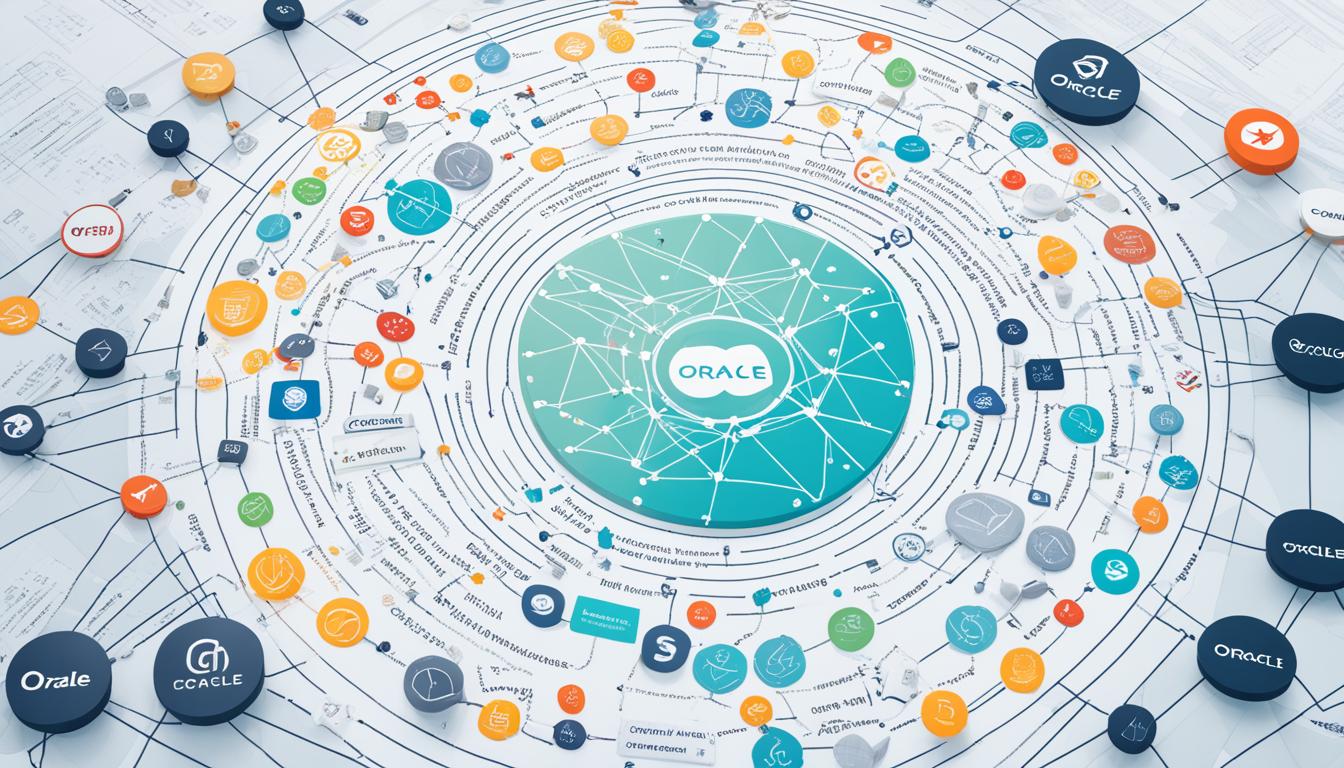Did you know that decentralized finance (DeFi) has grown by over 400% in the past year, with a total locked value reaching a staggering $50 billion?
In the world of Web3 technology and blockchain-based decentralized systems, oracles play a critical role in enabling the integration of reliable data into smart contracts. Oracles act as bridges between decentralized networks and external data sources, allowing smart contracts to access real-world information and make informed decisions based on that data.
This article will explore the importance of oracles in the Web3 ecosystem, specifically in the context of decentralized finance. We will delve into how oracles expand the capabilities of decentralized networks, address the challenges associated with data reliability, and examine the role of decentralized oracle networks in ensuring the security and accuracy of data provided to smart contracts.
Key Takeaways:
- Decentralized finance (DeFi) has experienced significant growth, reaching a total locked value of $50 billion.
- Oracles are essential in Web3 technology, enabling decentralized networks to access reliable data from external sources.
- Oracles expand the range of applications that can be built on decentralized networks, such as DeFi, gaming, and insurance.
- Decentralized oracle networks (DONs) are employed to enhance data security, eliminating the reliance on a single data source.
- By leveraging the benefits of oracles, Web3 technology unlocks new possibilities for building secure and efficient applications.
Importance of Oracles in Web3
Oracles play a crucial role in the Web3 ecosystem by enabling decentralized networks, such as blockchains, to access external data sources. In a decentralized system, where all data is stored on the network itself, oracles provide a pathway for accessing external data, expanding the possibilities for building applications.
One of the critical functionalities of oracles is enabling smart contracts to access real-world data and make informed decisions based on that data. External data access is essential for the execution and functionality of smart contracts, as they often need real-time information to perform actions or trigger specific events. Without oracles, smart contracts would be limited to only using the data available on the blockchain network, greatly reducing their capabilities.
However, there are challenges associated with utilizing oracles. One of the primary concerns is ensuring the reliability and accuracy of the data provided by oracles. Since oracles connect decentralized networks with external sources, there is a risk of receiving incorrect or tampered data, which may lead to incorrect outcomes or compromise the security of smart contracts.
“Oracles provide a crucial bridge between decentralized networks and the outside world, allowing for the seamless integration of external data and the utilization of smart contracts in various industries.”
To address these challenges, new approaches are emerging in the Web3 ecosystem, such as the utilization of multiple oracles. By integrating multiple oracles into a decentralized network, redundancy can be introduced to ensure data accuracy and reliability. This approach involves aggregating data from multiple oracles and calculating a consensus to determine the most accurate information.
The importance of oracles becomes even more evident in the Web3 ecosystem, especially in the decentralized finance (DeFi) sector. Many DeFi applications rely heavily on external data sources to provide real-time price feeds, market information, and other critical data. The integration of external data is vital for enabling the functionality and success of various DeFi applications, including decentralized exchanges, lending platforms, and prediction markets.
In summary, oracles are a vital component of Web3 technology, enabling decentralized networks to access external data sources and expand the possibilities for building applications. They play a crucial role in enabling smart contracts to utilize real-world data and making informed decisions. With the growing importance of decentralized finance and other sectors within the Web3 ecosystem, oracles will continue to play a significant role in providing reliable and accurate data to support the seamless integration of external information.
Decentralized Oracle Networks in Web3
Decentralized oracle networks (DONs) are a crucial component of Web3 technology, addressing the challenges associated with oracles. The reliance on a single oracle as a data source contradicts the principle of decentralization and compromises the security of smart contracts. A hacked oracle could provide false information and lead to incorrect smart contract outcomes.
In DONs, multiple independent oracle node operators and reliable data sources are combined to establish end-to-end decentralization and enhance data security. One notable example is Chainlink, a decentralized oracle network that incorporates three layers of decentralization to eliminate any single point of failure and ensure the security and reliability of the data provided to smart contracts.
Various types of blockchain oracles exist within decentralized oracle networks, each serving different functions and enabling different use cases. These include input oracles, output oracles, cross-chain oracles, and compute-enabled oracles. Leveraging the benefits of decentralized oracle networks, Web3 technology unlocks new possibilities for building secure, transparent, and efficient applications across various industries.

Leave a Reply